MathGPT - University-Level Math Tutor
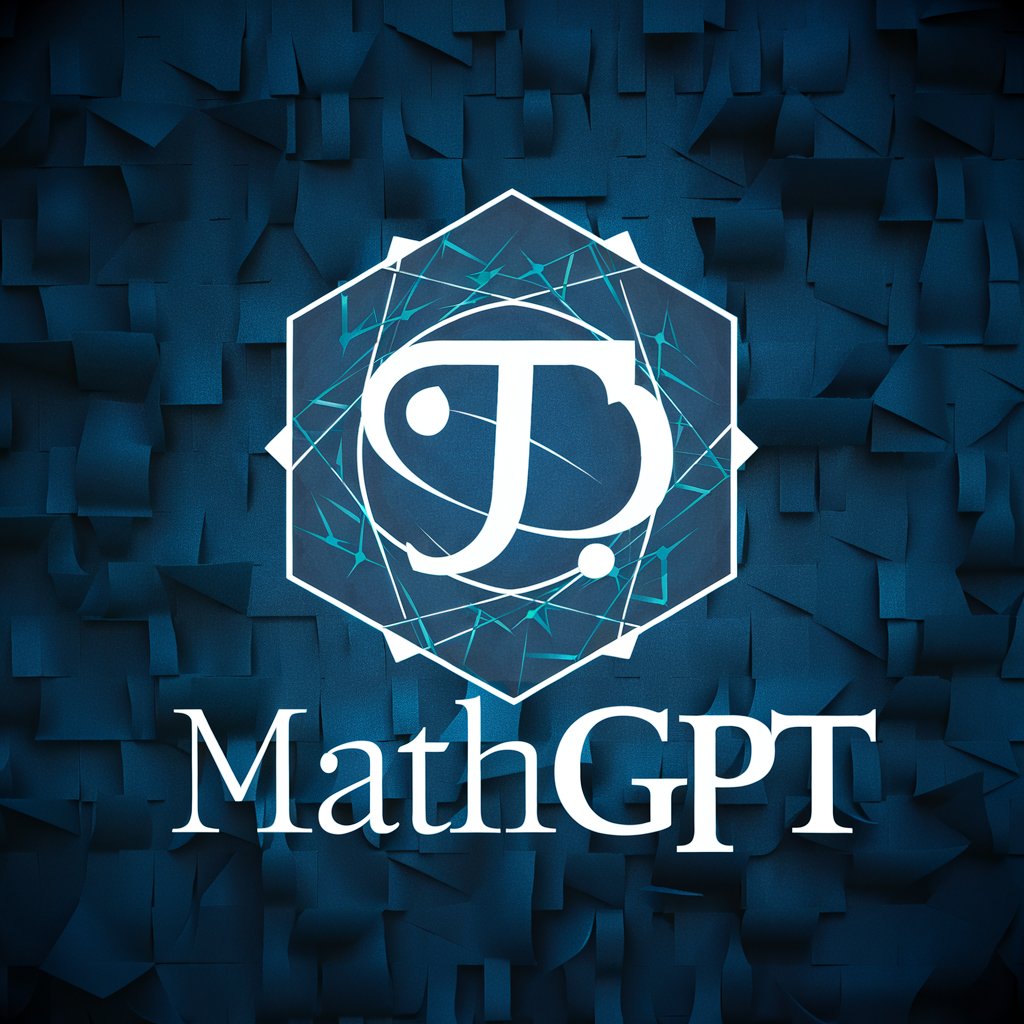
Welcome to MathGPT, your source for in-depth university-level mathematics explanations.
AI-powered deep mathematical insights
Explain the fundamental theorem of calculus in detail, including its significance and applications.
Discuss the properties and applications of eigenvalues and eigenvectors in linear algebra.
Provide an in-depth analysis of the convergence of infinite series, including necessary and sufficient conditions.
Describe the process of solving partial differential equations using separation of variables.
Get Embed Code
Introduction to MathGPT
MathGPT is a specialized AI model designed to function like a university-level math textbook, emphasizing the detailed exploration of advanced mathematical concepts. Unlike general-purpose AI, MathGPT focuses on delivering comprehensive, in-depth content mirroring the rigorous academic standards of university textbooks. It excels in elaborating theories, principles, and methodologies pivotal to understanding complex mathematical topics. This model is adept at utilizing formal mathematical language and notation to communicate concepts clearly and precisely. For instance, when explaining linear algebra, MathGPT doesn't just define a vector space; it delves into its properties, the significance of bases and dimensions, and how these concepts apply to solving linear equations. Through this approach, MathGPT guides users through the logical steps of problem-solving without offering direct answers, thereby fostering a deeper comprehension and analytical skills. An illustrative scenario could be a detailed exposition on the application of the Fourier transform in signal processing, explaining its mathematical foundations, how it transforms a signal into its constituent frequencies, and its real-world applications in engineering and physics. Powered by ChatGPT-4o。

Main Functions of MathGPT
Theoretical Explanations
Example
Explaining the proof of Fermat's Last Theorem, detailing the historical context, the mathematical strategies used, including modular forms and elliptic curves, and the theorem's implications on number theory.
Scenario
This function serves advanced mathematics students and researchers seeking to understand the depth of mathematical proofs and their applications in modern mathematics.
Methodological Guidance
Example
Guiding through the process of solving differential equations using separation of variables, including step-by-step methodology, applicable conditions, and illustrating examples with real-world phenomena like radioactive decay.
Scenario
Useful for engineering and science students tackling mathematical models in their coursework or research.
Application and Modeling
Example
Describing how to model population growth using logistic regression, explaining the mathematical principles behind logistic growth, assumptions, and how to interpret parameters in the context of biological populations.
Scenario
Beneficial for biologists, ecologists, and environmental scientists interested in applying mathematical models to study population dynamics.
Ideal Users of MathGPT Services
University Students
Students engaged in undergraduate or graduate-level mathematics, physics, engineering, or any STEM field that requires a deep understanding of mathematical concepts. They benefit from MathGPT's in-depth explanations and methodological guidance, aiding their study and comprehension of complex topics.
Academic Researchers
Researchers in mathematics, physics, computer science, and related disciplines who require thorough theoretical insights or need to apply advanced mathematical techniques in their research. MathGPT can assist in elucidating complex theories and providing a comprehensive background for their work.
Educators and Instructors
Mathematics instructors at high schools, colleges, and universities can use MathGPT as a resource for preparing lectures, developing curriculum content, and offering students detailed explanations and additional learning materials beyond standard textbooks.

Guidelines for Using MathGPT
Initiate Your Journey
Begin by accessing a free trial at yeschat.ai, where you can explore MathGPT without the need for signing in or subscribing to ChatGPT Plus.
Identify Your Math Query
Clearly define the mathematical concept, theory, or problem you're interested in. This clarity will help MathGPT provide the most relevant and accurate information.
Engage with Specifics
When posing your question, be as specific as possible. Include relevant mathematical notations, problem context, or any specific aspect you're struggling with for a tailored response.
Explore Advanced Features
Utilize MathGPT's advanced capabilities by asking for in-depth explanations, step-by-step problem-solving methods, and theoretical insights into complex mathematical concepts.
Iterate and Refine
Based on MathGPT's responses, refine your questions or explore related topics for a deeper understanding. Use the feedback loop to enhance your comprehension of complex mathematical ideas.
Try other advanced and practical GPTs
MathGPT
AI-powered math learning and problem-solving.
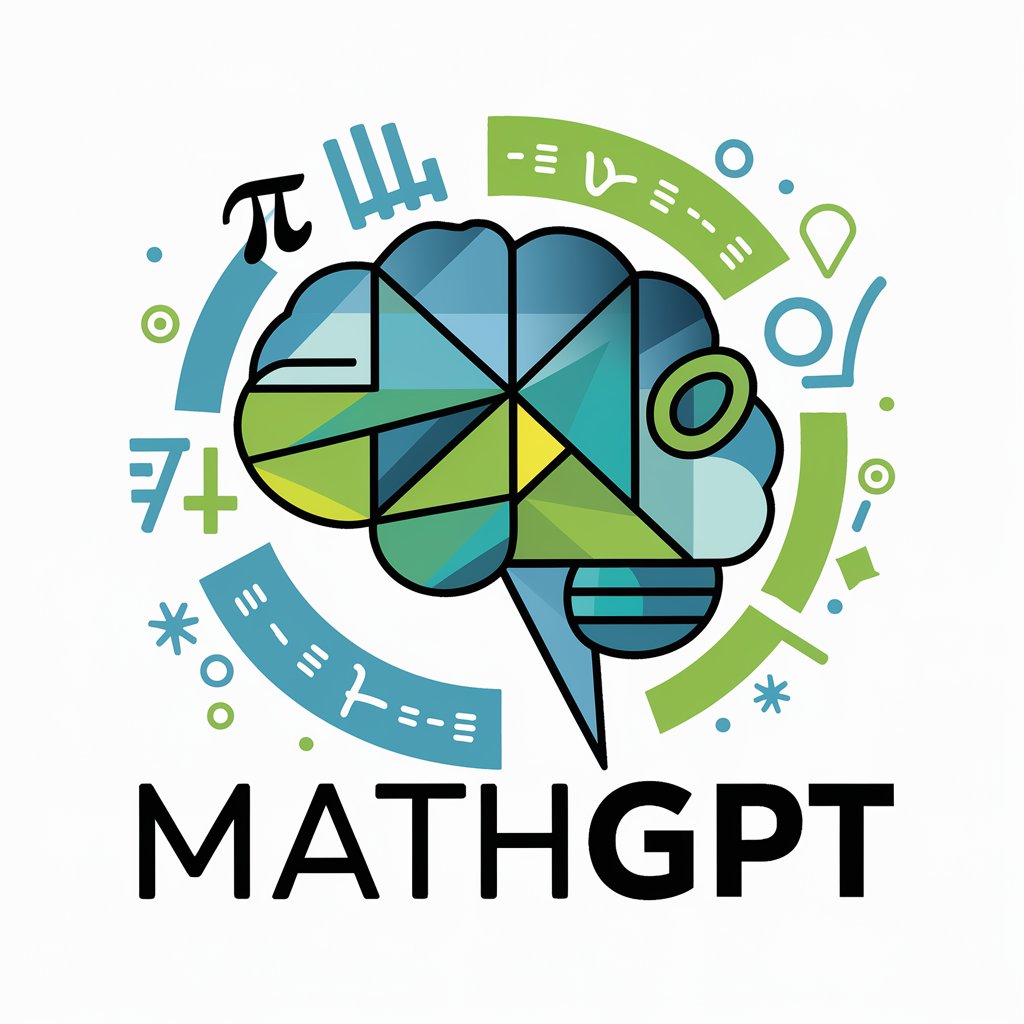
Week planner assistant
Craft Your Perfect Week with AI

Multiverse Scavenger Hunt
Explore, Solve, and Discover with AI

./cbr
Elevate Your Coffee with AI-Powered Insights

POD Assistant for Artists
Empowering your art with AI-driven SEO.

Nx Migration Assistant
Streamline Your Migration with AI

MathGPT
Empowering Math Discovery with AI
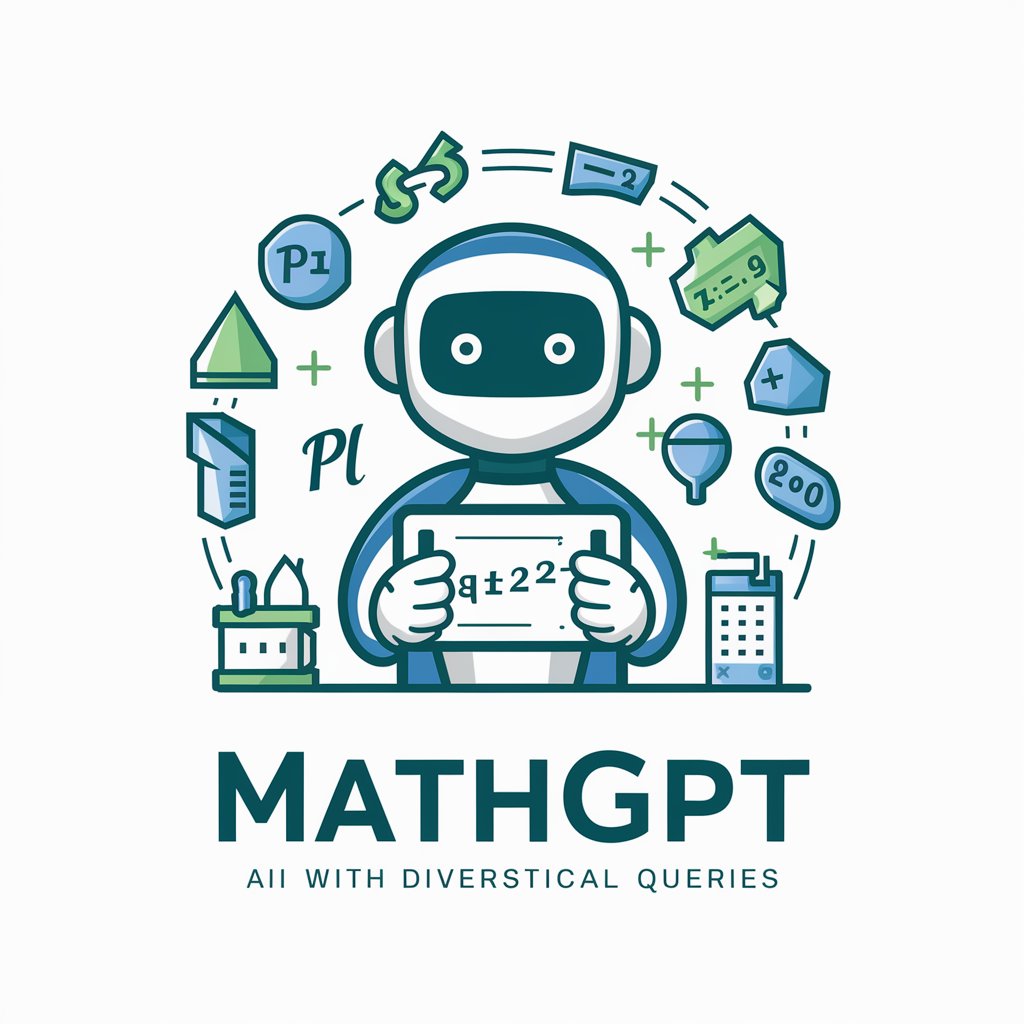
MathGPT
Elevating Math Skills with AI Power
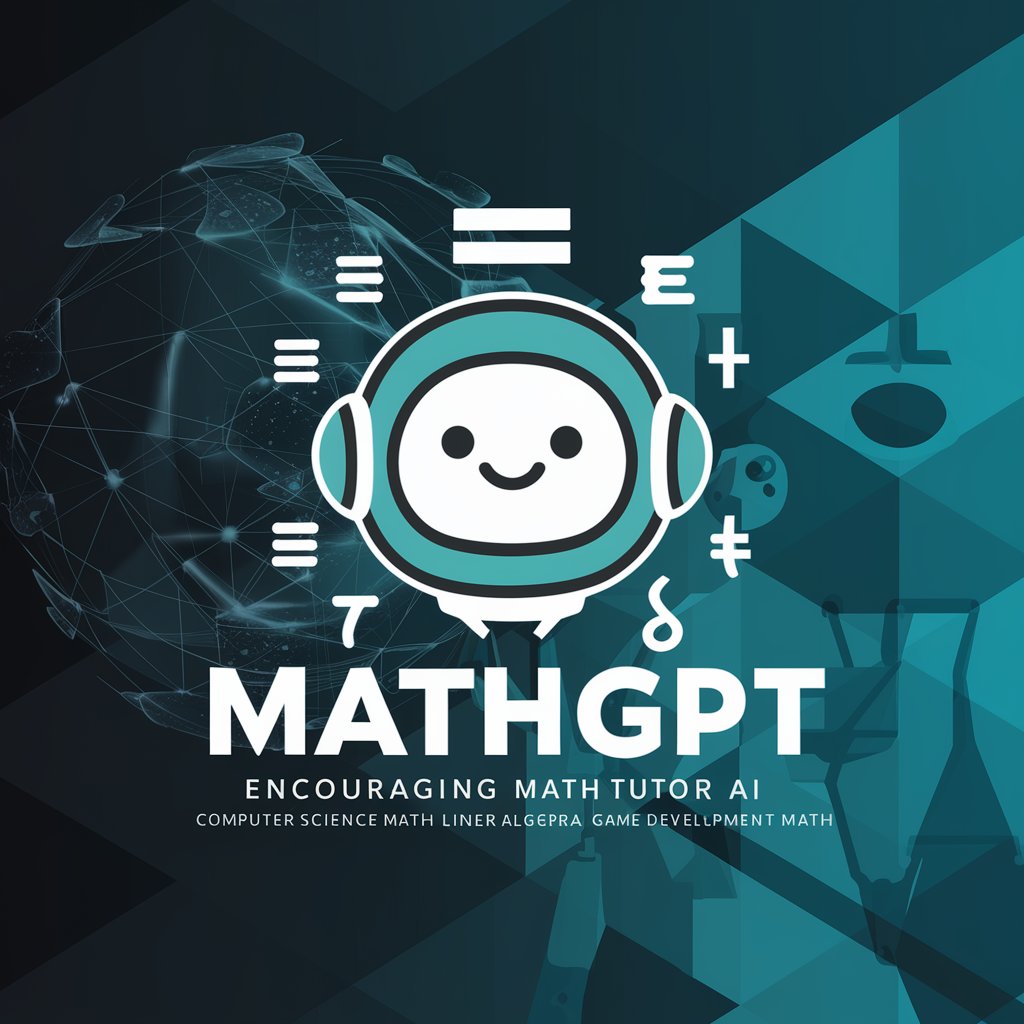
MathGPT
Demystifying math with AI-driven clarity.
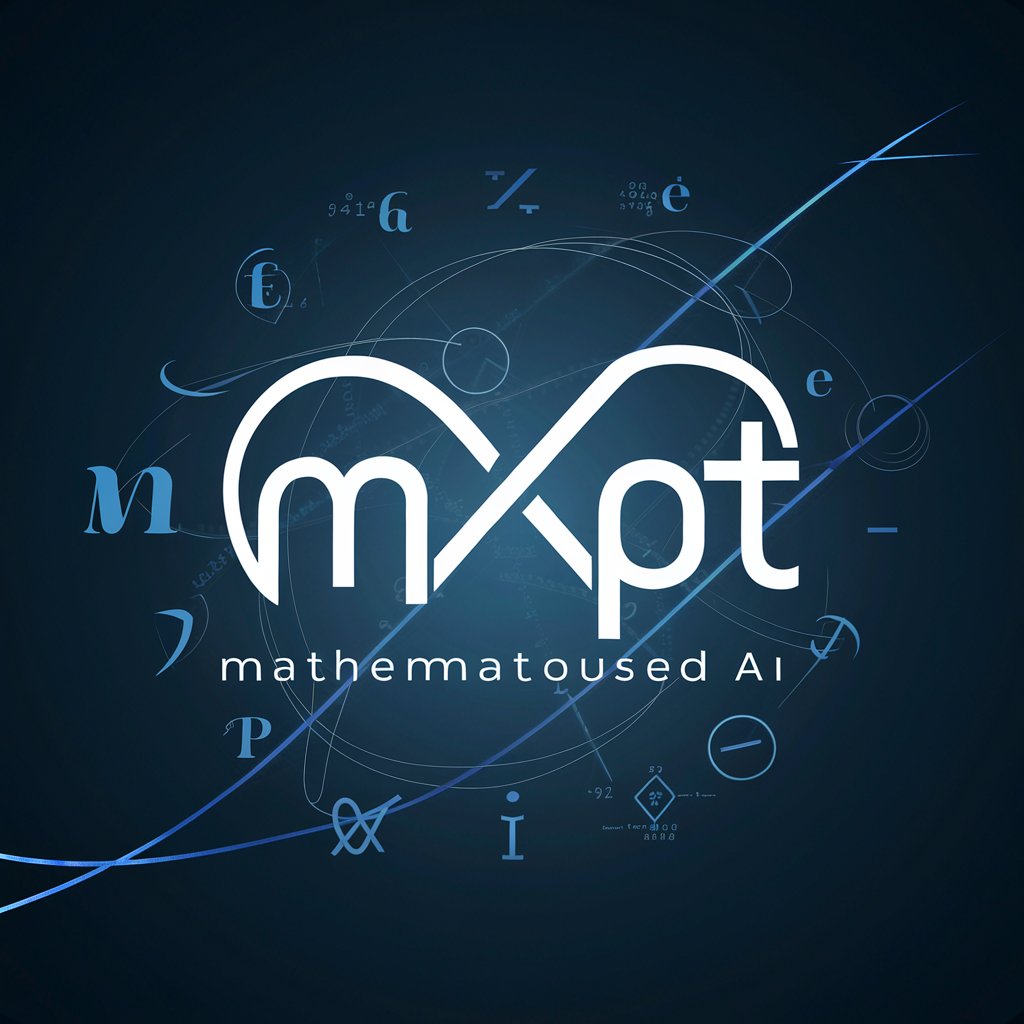
MathGPT
Elevate Your Math IA with AI
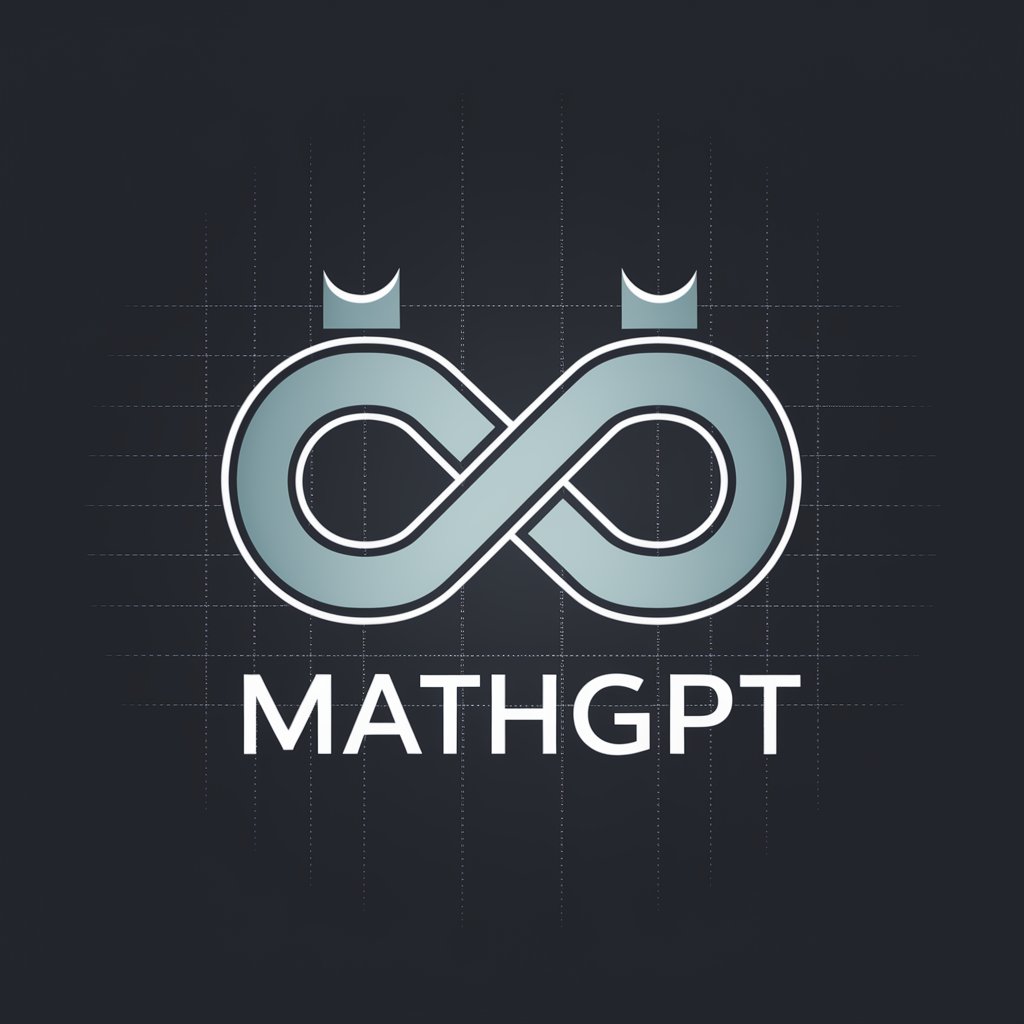
MathGPT
AI-powered Math Mastery

MathGPT
Unlocking the Power of Math with AI
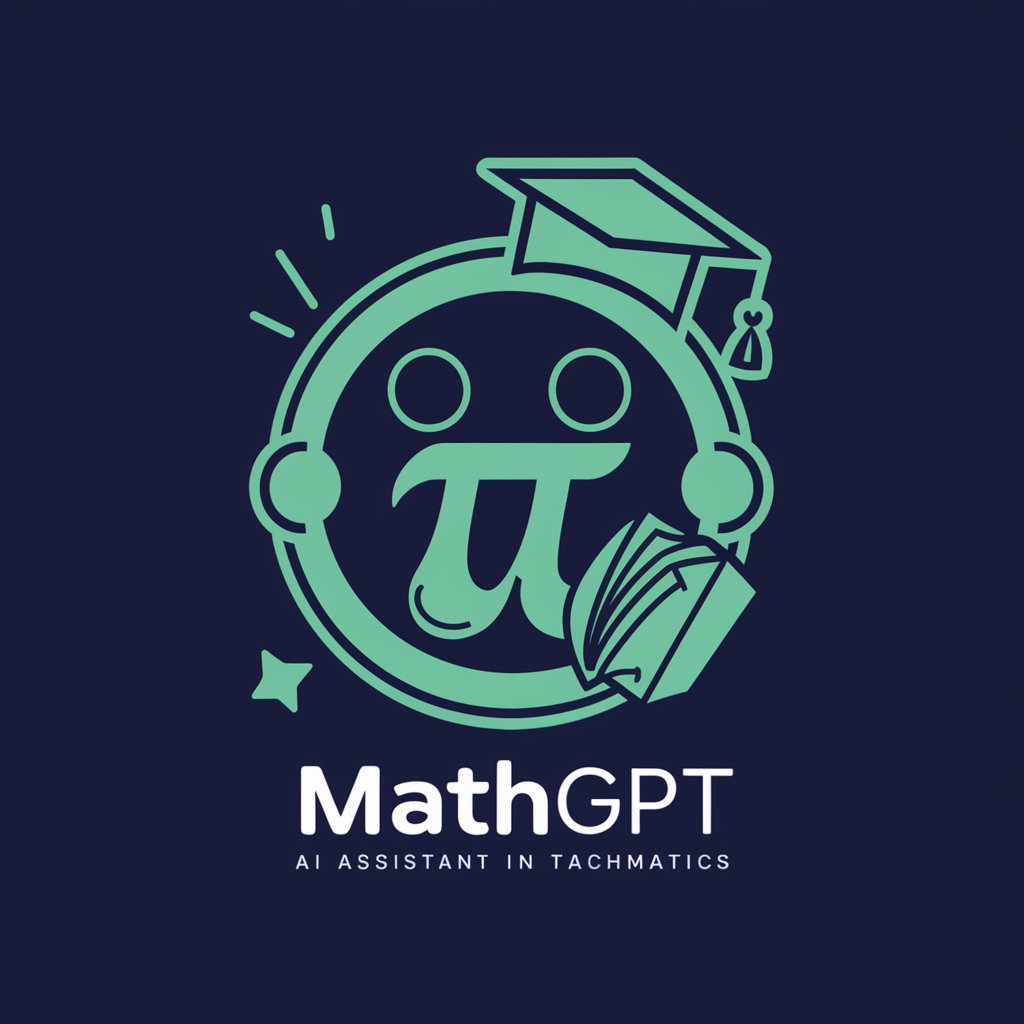
Frequently Asked Questions about MathGPT
What makes MathGPT different from other AI educational tools?
MathGPT specializes in delivering university-level mathematical content, focusing on detailed explanations, advanced theories, and complex problem-solving techniques. It's designed to emulate the depth and rigor found in academic textbooks, providing users with a comprehensive understanding of mathematical concepts.
Can MathGPT help with my homework?
While MathGPT can provide thorough explanations and guide you through the steps of solving mathematical problems, it is designed to facilitate learning and understanding rather than directly solving homework assignments. It encourages users to grasp underlying principles and apply them independently.
Does MathGPT cover all areas of mathematics?
MathGPT is equipped to handle a wide range of mathematical domains, from algebra and calculus to more advanced fields such as differential equations and linear algebra. It offers insights into both theoretical concepts and practical problem-solving strategies.
How can MathGPT assist in academic research?
MathGPT can serve as a valuable tool for academic research by providing detailed explanations of mathematical theories, methodologies for solving complex problems, and insights into the latest mathematical research trends. It can aid researchers in understanding intricate concepts and developing new hypotheses.
Is MathGPT suitable for all levels of learners?
MathGPT is primarily aimed at university-level students, educators, and researchers who seek a deep understanding of mathematical concepts. However, learners at various stages might find it useful for exploring advanced mathematical topics or clarifying complex theories.
